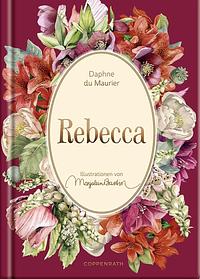You need to sign in or sign up before continuing.
Take a photo of a barcode or cover
dark
sad
tense
medium-paced
Plot or Character Driven:
Character
Strong character development:
Yes
Loveable characters:
Yes
Flaws of characters a main focus:
Yes
mysterious
reflective
slow-paced
Plot or Character Driven:
Character
Flaws of characters a main focus:
Yes
like carol the price of salt but slightly more toxic and slightly less yuri.
challenging
dark
emotional
tense
medium-paced
Plot or Character Driven:
A mix
Strong character development:
Yes
Loveable characters:
Yes
Diverse cast of characters:
Yes
Flaws of characters a main focus:
Complicated
Graphic: Bullying, Death, Murder
Moderate: Incest
Minor: Animal cruelty
dark
mysterious
slow-paced
Plot or Character Driven:
A mix
Strong character development:
Yes
Loveable characters:
Complicated
Diverse cast of characters:
No
Flaws of characters a main focus:
Complicated
dark
emotional
mysterious
adventurous
dark
emotional
mysterious
fast-paced
Plot or Character Driven:
Plot
Strong character development:
Complicated
Loveable characters:
Complicated
Diverse cast of characters:
No
Flaws of characters a main focus:
Yes
medium-paced
Plot or Character Driven:
Character
Strong character development:
Complicated
Loveable characters:
No
Diverse cast of characters:
No
Flaws of characters a main focus:
Yes
dark
emotional
tense
medium-paced
Plot or Character Driven:
A mix
Strong character development:
Yes
Loveable characters:
No
Diverse cast of characters:
No
Flaws of characters a main focus:
Yes
I wasn’t sure what to expect going into this book - I knew it was a classic, had heard words such as “gothic” and “disturbing” used to describe it, but didn’t really know much of the plot. Lots of use of dreams and daydreaming, and definitely gave some gothic vibes. A captivating read.
3.5⭐️
Suspense is really good and there are some creepy, gothic elements that were well written. I do like it and I like the twists in the ending, I do think I prefer Jamaica Inn so much more though, the romance is written in better there and feels more authentic imo.
Suspense is really good and there are some creepy, gothic elements that were well written. I do like it and I like the twists in the ending, I do think I prefer Jamaica Inn so much more though, the romance is written in better there and feels more authentic imo.
adventurous
dark
emotional
mysterious
reflective
sad
tense
medium-paced
Plot or Character Driven:
A mix
Strong character development:
Yes
Loveable characters:
Complicated
Diverse cast of characters:
No
Flaws of characters a main focus:
Complicated
This was simply phenomenal. I take no pains to conceal how much I enjoyed this and how deserving it is of all the praise it still receives all these decades later. I initailly picked this up because I was eager to watch Hitchcock's adaptation with Laurence Olivier, and now that I've finished it, I'm even more excited.
What jumped out to me immediately was the maturity of the second Mrs de Winter; the theme of it embodied within her, the growth she has as the narrative goes on, and the value other people ascribe to it. She is clearly young as the novel begins; in servitude to a richer woman who means nothing to her. In her naivite, she is swept into a deep love for Maxim, without enough critical thinking to doubt whether or not it's real. When I picture her arrival in Manderley, I picture her as small and meek, baby faced and quiet. Her interactions with Maxim and Mrs Danvers highlight this character feature well, as she's scared to say anythign that might indicate that she doesn't belong. The dinner party exemplified this best to me, with her excitement funelled through her costume of Caroline de Winter. She seeks to perform for the masses that expect things from her just like a child, she withholds the surprise of it just like a child, and cries and hides when it all goes wrong. Her emotions in this chapter are understandable and valid, but it's the treatment and scolding she receives that highlight the reaction as childish. You can't see her as a grown woman in a gown remeniscent of Maxim's past, but as a girl in a costume that cannot be right for her. It's was a lesson given to her by Mrs Danvers, and a punishment delievred by Maxim.This pattern of behaviour shifts as soon as she finds out Maxim killed Rebecca. Her insecurity stemming from his lack of affection becomes understood, and dissolves. She takes no pity on Danvers, and becomes assertive, growing into her status in the blink of an eye.
I also interpreted a lot of her internal monologue as intrusive thought/OCD. She leaps to the worst conclusions and presents them to herself as fact, which I think does well to establish the type of paranoia essential to female gothic. She is almost gaslighted by the people around her about the presence of Rebecca's spirit around her, constantly told that she is nothing to compare to her, and yet expected to hold the same authority as Maxim's new wife.The greatest example of these thoughts comes when she believes Maxim will be caught for his crime, and details the method of hanging, the fear translating through the fast paced ramble. It's terrifying, and although Maxim isn't the most sympathetic character, we care because she cares, and her fears are our fears.
As for the character of Rebecca herself, I had so many theories and thoughts as I went through the book. I wondered if Du Maurier was going to play with the 'mad woman in the attic' trope, or reveal she was secretly alive in some other capacity. She sows seeds and paces them really well, like the damp in the cottage, the ramblings of Ben, the cupid in the morning room, the handkercheif in the pocket of the coat. It constantly feels like Rebecca is still around, and in retrospect, we can understand the bizarre nature of everyone's behaviour.One small inconsistency that I found with Maxim's character after revealing he hated Rebecca the whole time was his reaction to the broken cupid. On reading that chapter, I was terrified for the second Mrs de Winter, whose (again, childish) actions of hiding the remains lead to enough confusion that the man of the house needed to get involved. I imagined him angry and bitter that this wedding present was broken, and then to find out he wasn't to care seemed odd. This could be justified by his generally conflicting character, or his hiding of emotions, or the decription being from the biased perspective of our over thinking narrator, but it still leaves a tiny hold that makes me curious.
On the subject on Manderley itself, I knew when I was just a hundred pages in that I'd need to reread the first chapter as soon as I finished it. The seculsion of the home is the gothic castle, the entrapment and the subjugation of isolation to a female figure.So, when the ending wraps up the setting as being burned to the ground by Mrs Danvers, it shocked me. There is so much talk in the beginning of 'we can never go back there,' which leading one to assume the narrator has divorced Maxim, or that he has died, or some other situation that seperates her from the location and that era in her life. Manderley's permenance and history make it difficult to believe that it could ever be gone forever, as it entrenches so much of Rebecca's life, allowing her to penetrate the world after death. Maxim's concern with legitimate heirs and anger that Rebecca might carry a son that isn't his own is what pushes him over the edge to kill her. He'd rather kill her than allow her to raise her son in his home. It made me think a lot about Angela Carter's Bloody Chamber, too, with much to compare between the settings where secrets, violence, and destruction are concerned. It's an excellently crafted place that feels so tangible.
There's still so much more to say about this, and I'll be pondering on those thoughts for a long while. This book is a definite recommend, and I can't wait to read Du Maurier's other classics.
What jumped out to me immediately was the maturity of the second Mrs de Winter; the theme of it embodied within her, the growth she has as the narrative goes on, and the value other people ascribe to it. She is clearly young as the novel begins; in servitude to a richer woman who means nothing to her. In her naivite, she is swept into a deep love for Maxim, without enough critical thinking to doubt whether or not it's real. When I picture her arrival in Manderley, I picture her as small and meek, baby faced and quiet. Her interactions with Maxim and Mrs Danvers highlight this character feature well, as she's scared to say anythign that might indicate that she doesn't belong. The dinner party exemplified this best to me, with her excitement funelled through her costume of Caroline de Winter. She seeks to perform for the masses that expect things from her just like a child, she withholds the surprise of it just like a child, and cries and hides when it all goes wrong. Her emotions in this chapter are understandable and valid, but it's the treatment and scolding she receives that highlight the reaction as childish. You can't see her as a grown woman in a gown remeniscent of Maxim's past, but as a girl in a costume that cannot be right for her. It's was a lesson given to her by Mrs Danvers, and a punishment delievred by Maxim.
I also interpreted a lot of her internal monologue as intrusive thought/OCD. She leaps to the worst conclusions and presents them to herself as fact, which I think does well to establish the type of paranoia essential to female gothic. She is almost gaslighted by the people around her about the presence of Rebecca's spirit around her, constantly told that she is nothing to compare to her, and yet expected to hold the same authority as Maxim's new wife.
As for the character of Rebecca herself, I had so many theories and thoughts as I went through the book. I wondered if Du Maurier was going to play with the 'mad woman in the attic' trope, or reveal she was secretly alive in some other capacity. She sows seeds and paces them really well, like the damp in the cottage, the ramblings of Ben, the cupid in the morning room, the handkercheif in the pocket of the coat. It constantly feels like Rebecca is still around, and in retrospect, we can understand the bizarre nature of everyone's behaviour.
On the subject on Manderley itself, I knew when I was just a hundred pages in that I'd need to reread the first chapter as soon as I finished it. The seculsion of the home is the gothic castle, the entrapment and the subjugation of isolation to a female figure.
There's still so much more to say about this, and I'll be pondering on those thoughts for a long while. This book is a definite recommend, and I can't wait to read Du Maurier's other classics.





